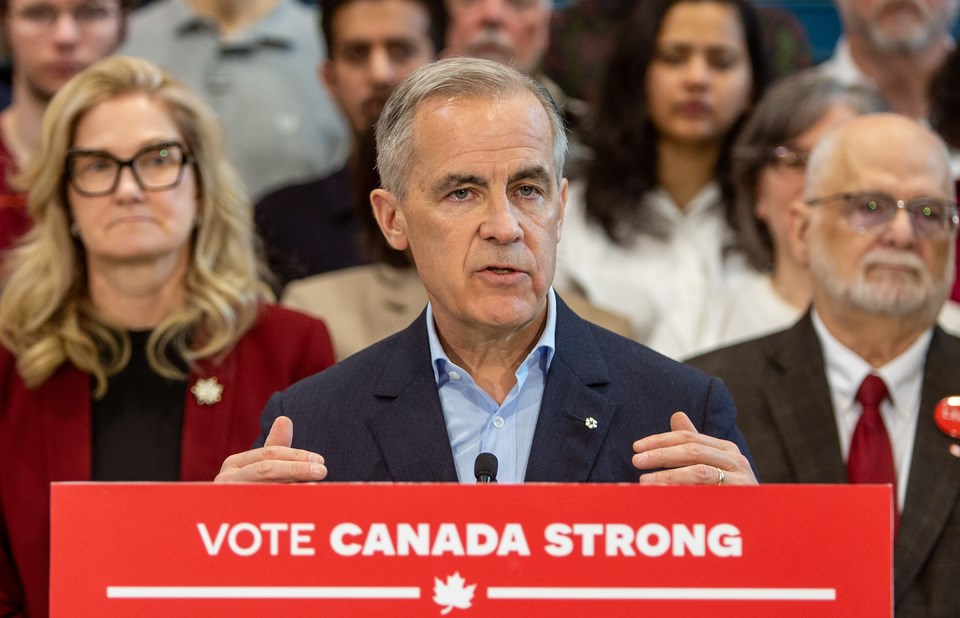Why the 'Great Rotation' away from US assets will boost Britain

Try 6 issues free View all Investing Stocks and Shares Commodities Personal Finance Personal Finance Personal Finance Personal Finance View all Personal Finance Bank accounts Credit cards Latest Issue MoneyWeek Glossary Newsletter sign up Pension tax refunds Private school fees rise Are Premium Bonds worth it? ISA millionaires MoneyWeek Readers' Choice Awards UK Stock Markets Why the 'Great Rotation' away from US assets will boost Britain Disenchanted investors have only just begun to withdraw capital from America, says Jeremy McKeown. Newsletter sign up When you purchase through links on our site, we may earn an affiliate commission. Here’s how it works. (Image credit: Getty Images) Jeremy McKeown 29 April 2025 in Features Former Citibank CEO Walter Wriston claimed that capital, allowed to flow, would go where it is wanted and stay where it is treated well. His contemporary, the legendary investor John Templeton, said that bull markets mature on optimism and die on euphoria. Both men understood how capital flows and sentiment affect asset values. If they were alive today, they would realise the significance of how global equities have become so concentrated in a few large US technology companies. The US share of the MSCI World index now represents far more than twice its share of global GDP, and all ten of the largest firms in the 1,350 company index are US-listed. The Magnificent Seven AI companies alone account for 21% of this global gauge. By any measure, the world is long on US technology amid a well-established view that America is the pre-eminent home for its investment capital. Donald Trump’s re-election only amplified the prevailing sense of US exceptionalism. Investors, CEOs and commentators were euphoric. By the time Mark Zuckerberg appeared at the inauguration, in the “tech bros’” posse of Trump cheerleaders, Meta’s shares had risen 10% since the election. Within a month, they had risen another 20%. Templeton’s grave must have been emitting whirring sounds. Today, Meta’s shares are 14% below the level of the election and 30% off their peak. The loss of value for Meta alone is over $500 billion. In the two days after Trump’s Rose Garden presentation on 2 April, global equity investors were liberated from $6.6 trillion of value, of which more than 80% came from US markets. How did this turnabout happen? Subscribe to MoneyWeek Subscribe to MoneyWeek today and get your first six magazine issues absolutely FREE Get 6 issues free Sign up to Money Morning Don't miss the latest investment and personal finances news, market analysis, plus money-saving tips with our free twice-daily newsletter Don't miss the latest investment and personal finances news, market analysis, plus money-saving tips with our free twice-daily newsletter The mask slips Firstly, there were noises from White House insiders about how Wall Street could look after itself while policy focused on fixing Main Street. Most thought this was just code for prioritising the bond market. After all, there was the small matter of $9 trillion of Treasury debt to refinance in 2025. Sure, Trump had spoken of his love of tariffs, but we had been told not to take him literally. But then, it happened: he did it, the mask slipped, and the world’s capital took fright. As markets opened the next day, it became apparent how unprepared investors were. As with Brexit, markets couldn’t comprehend economic self-harm as a policy option – in this case, the price the US administration would pay to restore manufacturing jobs to the Rust Belt. It was the MAGA revolution in action and damn the consequences. But, of course, none of this should have been a surprise. Anyone who had listened to Trump over the last 40 years knew he had unconventional views about world trade; foreign-trade surpluses were unfair and un-American. And, of course, as with most populist mantras, there was more than a grain of truth to his views. Over decades of unchecked globalism, the burden of defending the world’s shipping lanes and providing its reserve currency, what economists call the Triffin dilemma, had made America’s biggest export its debt obligations. The intertwined relationship between the world’s trade flows and capital flows ultimately acted as the brake on the tariff maximalists in the Trump cabinet. The US government, which happily spent the last quarter of a century financing itself via the kindness of strangers, just raised two fingers to its primary lenders. Within days of Liberation Day, the US faced a classic emerging-market confidence crisis represented by rising bond yields and a falling currency. As if replicating Brexit wasn’t enough, it seemed destined to repeat the UK’s Liz Truss moment as well. However, in this instance, it was not a localised event. Whether we like it or not, the US dollar remains the world’s international currency. Its Treasuries are its main reserve asset, commonly accepted as the world’s pristine collateral, the global risk-free rate, and the foundation of our financial calculus. Confidence in the entire dollar-based capital markets system was at stake. Competition from China Still, evidence of the rotation out of US assets started before Trump’s tariff tantrums, as the divergence in global equity markets created what fund manager Sean Peche termed the MIGA movement – “Make International Great Again”. Five days after the inauguration, a Chinese firm few had ever heard of announced its new AI agent, DeepSeek-R1. Critically, the details claimed the company had achieved its milestones in a less computationally intensive manner than typically adopted by the Magnificent Seven. This was a wake-up call to investors that supposedly “uninvestable” Chinese companies were still in the AI race, previously considered an exceptional American monopoly. In the subsequent weeks, Nvidia lost 30% of its value, while Alibaba gained 70%. The wider Nasdaq 100 underperformed the Hang Seng by 36% in just eight weeks. But it got worse. Three weeks later, J.D. Vance arrived to address Europe’s leaders at the Munich Security Conference, reminding his audience of the need for European self-reliance in defence. However, he couldn’t help but add how disappointed the new administration was with its European allies and that they might want to look away as the US negotiated a settlement with Russia to carve up Ukraine – a deal the US expected Europe to enforce. As Vance spoke, the German defence company Rheinmetall, whose shares had risen nearly tenfold since the invasion of Ukraine three years earlier, was trading at €750; a month later, they had gained a further 75%. German equities haven’t seen moves like this in a generation. Indeed, the unifying political reaction to the US onslaught was that Germany’s Bundestag agreed to release its fabled fiscal debt brake, unleashing €1 trillion into its sclerotic economy. While we are in unprecedented times for the overuse of the word “unprecedented”, this was truly unprecedented. The euro rose sharply against the dollar, and the DAX 40 roared to a 12.5% first-quarter gain, a loss of more than 20% for dollar-based investors compared with the S&P 500. So, where does this leave investors? They have witnessed elements of a Brexit-type trade regime realignment and a Truss-type financial crisis, and now face the prospect of a disruption to global shipping routes reminiscent of the Covid period. The second-order effect of these crises has been a deleveraging of market risk. Collateral levels have been raised, and risk positions have been reduced. At these times, previously uncorrelated or negatively correlated markets become correlated, creating further unintended consequences. Financial risk intensifies, and many previous certainties become confusing. Crucially, meaningful trends are more difficult to navigate. Another reason to buy UK stocks However, the structural trend equity investors should focus on is the rotation out of the US. It won’t happen quickly, but sufficient damage has been done, giving investors reason to move capital. According to UBS, long-term European investors own $9 trillion of US equities, about 20% of the S&P 500. This money has recorded extraordinary gains in the last 15 years, denominated in local currency. In recent months, these gains have been dented but unrealised. Allocations will now be elsewhere, and as China and Germany have seen, the potential price action is dramatic when this capital is reallocated to smaller or undervalued markets. However, this rotation hasn’t started. We have only seen the cracks as markets begin to sense the profound impact it is about to have. With the UK representing less than 4% of the average global portfolio, a tiny slice of the Great Rotation would have a big impact on its currency and equity markets. All we need is a catalyst, and just maybe the delivery of a bilateral US trade deal is it; or perhaps it will come from somewhere else. But the essence of value investing is not waiting for the catalyst, but seeking asymmetric risk opportunities that protect your downside and offer ample scope for upside. UK investors remain on the verge of such a payday, the timing of which, as ever, remains elusive. A version of this article was first published by wealth management group Dowgate Wealth. This article was published in MoneyWeek's magazine. Enjoy exclusive early access to news, opinion and analysis from our team of financial experts with a MoneyWeek subscription. Sign up for MoneyWeek's newsletters Get the latest financial news, insights and expert analysis from our award-winning MoneyWeek team, to help you understand what really matters when it comes to your finances. Contact me with news and offers from other Future brandsReceive email from us on behalf of our trusted partners or sponsorsBy submitting your information you agree to the Terms & Conditions and Privacy Policy and are aged 16 or over. Jeremy McKeown Progressive Equity Research The problem with thematic investing Thematic investing comes with significant drawbacks, and returns are often underwhelming, says Rupert Hargreaves ByRupert Hargreaves Equity release jumps 32% amid growing inheritance tax concerns Homeowners have unlocked millions of pounds in housing wealth so far in 2025. Could it help reduce inheritance tax liabilities? ByLaura Miller You might also like Bargain Britain boasts both value and momentum Ian Lance, manager of the Temple Bar Investment Trust, tells Andrew Van Sickle that the outlook for UK stocks has improved and healthy long-term returns are in prospect ByAndrew Van Sickle Best of British bargains: cash in on undervalued companies in the UK stock market Michael Field, Chief Equity Market Strategist, EMEA, Morningstar, selects three attractive UK stocks where he'd put his money ByMichael Field Primark owner Associated British Foods is an overlooked gem going cheap — should you buy shares? Associated British Foods, the owner of Primark, is a family-owned business, which means it is passed over by the increasingly popular passive investment funds. That spells opportunity for private investors, says Jamie Ward. ByJamie Ward UK equities are set for a bull market – buy now Investors shouldn’t wait for a crisis to buy UK equities, says Max King. Do so now, in the expectation of much better returns in due course ByMax King How to find top-quality income picks in the UK stock market Four top-quality UK stock market picks according to Iain Pyle, manager of Shires Income Trust ByIain Pyle How to save the dying UK stock market The UK stock market is in long-term decline. To fix that, we must first recognise why equity markets exist and who they should serve ByBruce Packard Bargain British stocks with long-term potential Three British stocks with plenty of long-term potential, according to Ian Lance, co-manager of Temple Bar Investment Trust ByIan Lance BT cuts annual revenue forecast – what's next for the telecoms giant? BT has trimmed its sales forecast, but the overall outlook remains positive and big investors have bought in. Should you invest? ByDr Matthew Partridge View More \25b8 Useful links Subscribe to MoneyWeek Get the MoneyWeek newsletter Latest Issue Financial glossary MoneyWeek Wealth Summit Money Masterclass Most Popular Best savings accounts Where will house prices go? Contact Future's experts Terms and Conditions Privacy Policy Cookie Policy Advertise with us Moneyweek is part of Future plc, an international media group and leading digital publisher. Visit our corporate site. Future Publishing Limited Quay House, The Ambury, BA1 1UA. All rights reserved. England and Wales company registration number 2008885.



















